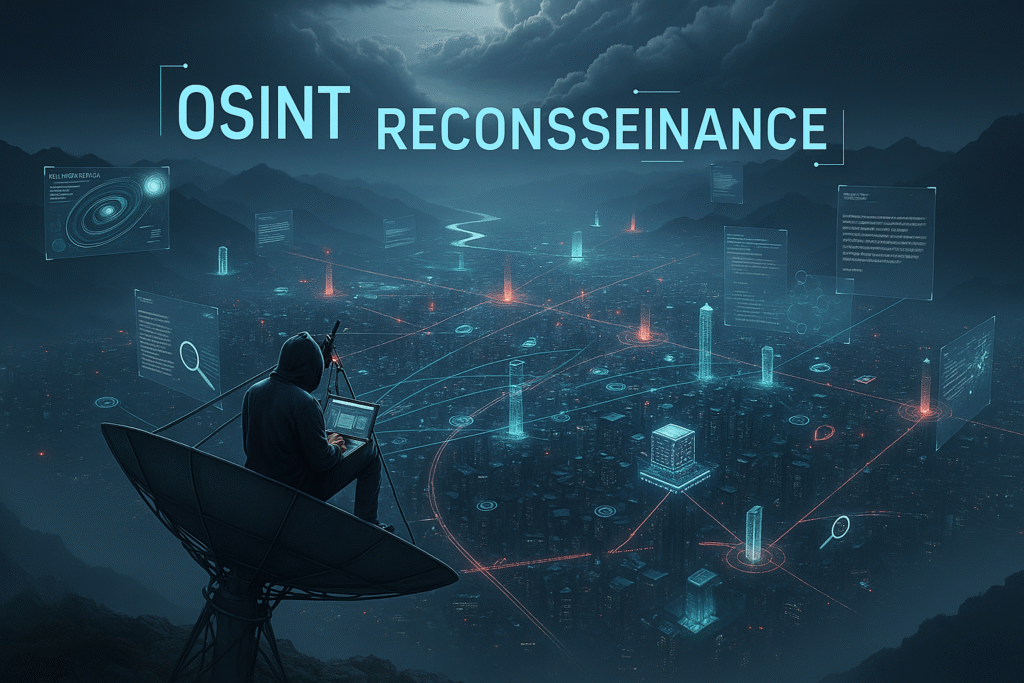Did you know that most cyberattacks don’t start with fancy malware or zero-day exploits? They start with information that’s already publicly available. Before launching an attack, hackers spend time gathering intelligence about their targets — a process called OSINT (Open Source Intelligence).
What is OSINT?
OSINT is the practice of collecting information from publicly accessible sources. Hackers use it to map a target’s digital footprint — from employee details to technical infrastructure — without ever touching internal systems. The information they collect becomes a blueprint for their next move.
How Hackers Gather Intelligence
Attackers don’t need sophisticated tools if organizations leave information scattered online. Common OSINT sources include:
- Social media profiles — employee names, job roles, and project mentions.
- Company websites — contact details, press releases, and staff directories.
- Public code repositories — hardcoded credentials or internal project details.
- Domain records (WHOIS, DNS) — server IPs, email configurations.
- Cloud storage links — accidentally exposed documents.
- Data breaches — leaked credentials reused across platforms.
- Internet scanners (like Shodan) — exposed ports, devices, and misconfigured services.

Why This Matters
Most attacks don’t require advanced exploits. A single employee oversharing on LinkedIn or a forgotten GitHub repository with sensitive code can hand an attacker exactly what they need. The reality is: your public digital footprint can be your biggest vulnerability.
Key Takeaways
- Think like an attacker: Conduct an OSINT self-audit of your organization.
- Reduce exposure: Limit unnecessary information online and secure sensitive data.
- Cybersecurity isn’t just firewalls and software — it’s about managing your digital presence.
By understanding how hackers gather intelligence, you can close the gaps before someone else finds them.
